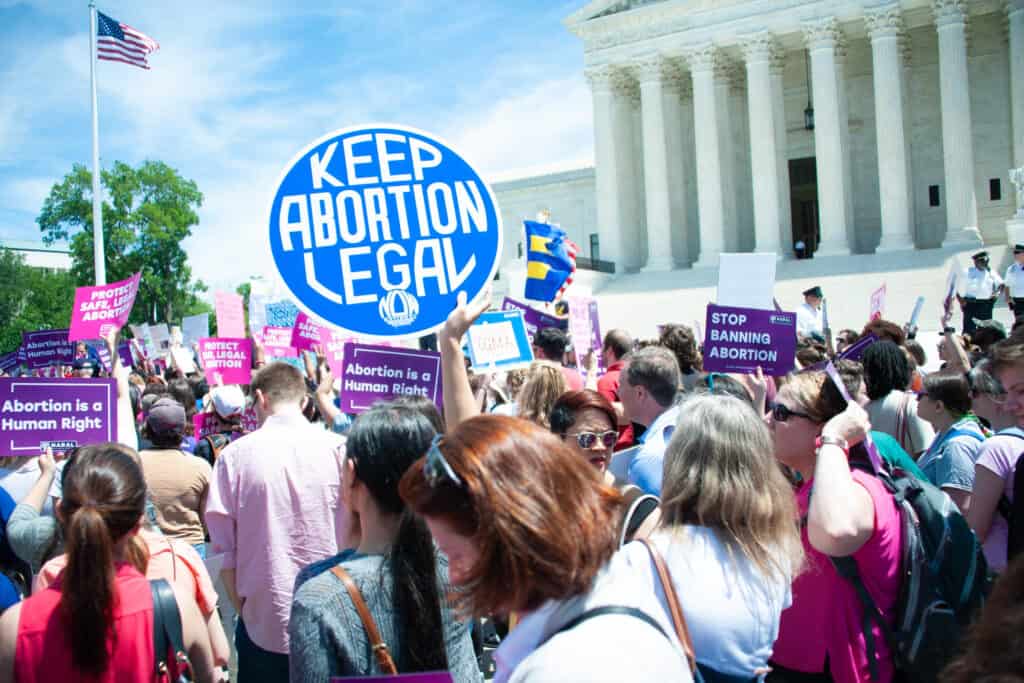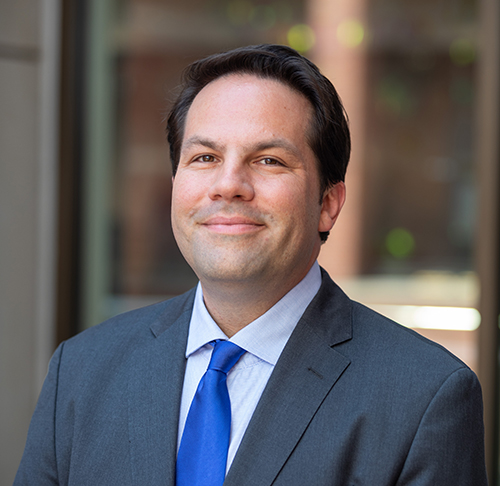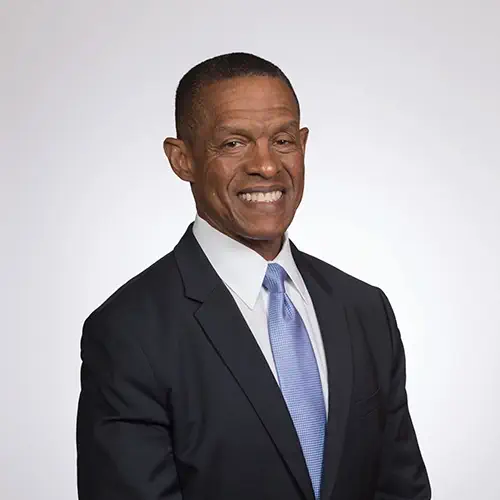With Roe v. Wade in jeopardy, USC faculty discuss its potential impact on the 2022 midterms

SCOTUS’ actions could have major implications for voter turnout in November
By Eric Ruble
Highlights
- Overturning Roe could motivate voters from both parties
- Alleged threats against a SCOTUS justice leading to new security protections
- Is the court losing its legitimacy?
Polls show the 2022 midterm elections are looking bleak for Democrats. A growing number of people want Republicans in Congress, a FiveThirtyEight poll shows. Plus, the party in the White House traditionally fares poorly in midterms.

(Photo: USC Dornsife)
But would Democrats stand a better chance if the Supreme Court overturns Roe v. Wade, the landmark decision giving women the right to an abortion? Professors from USC Price and USC Dornsife discussed what overturning Roe could mean for midterm election turnout and the future of the nation’s highest court.
“It is an open question to my mind whether overturning Roe, if it happens, will motivate progressives or convince them that Democrats cannot be trusted,” said Professor Jeb Barnes of USC Dornsife. “Typically, taking away something tends to motivate people.”
At the same time, he said, reversing Roe v. Wade would also energize social conservatives, who are preparing to fight access to abortion state-by-state and are advocating for a federal ban on abortion.
Professor Christian Grose, academic director of the USC Schwarzenegger Institute for State and Global Policy at USC Price, said inflation will make November especially difficult for Democrats, as will President Joe Biden’s low approval rating. But overturning the landmark abortion ruling would boost turnout of voters who tend to vote for Democrats.
“In past midterm elections, social issues have motivated voters both on the right and the left to turn out. When the economy is bad, political parties have used social issues like abortion to motivate their base. This has recently been an effective tactic of Republican candidates,” Grose explained. “However, this time the issue of abortion very well may help Democrats. It is highly mobilizing to their base of voters in what could be a Republican year.”

(Photo: Christian Grose)
Shifting public perspectives of SCOTUS
The outcry over the Court’s anticipated Roe v. Wade decision has also led to increased concern about the safety of Supreme Court justices.
The recent arrest and subsequent attempted murder charges against a California man who allegedly threatened to kill Supreme Court Justice Brett Kavanaugh illustrates an increasing threat to members of the judiciary and elected officials by homegrown violent extremists. That’s according to Erroll Southers, Professor of the Practice in National and Homeland Security at USC Price.
Southers, an expert on homegrown violent extremism, terrorist recruitment and radicalization, pointed out that such extremists “do not live in a vacuum, nor are their targets random.”
“While they may be alienated individuals who have embraced a legitimizing ideology, it is the ‘enabling community’ component that we can influence by reporting concerning statements, postings, or behaviors,’” said Southers.

The U.S. House of Representatives recently voted to pass a bill extending security protections to Supreme Court justices’ immediate family members. President Joe Biden is expected to sign it into law.
The leak last month of the draft decision by the Court to overturn the right to abortion is only the latest in a series of events contributing to the public’s perception that the institution is no longer “an apolitical arbiter of the Constitution,” said Barnes.
“The unprecedented leaking of a draft decision in a major case, the drumbeat of media coverage about the politicization of the Court, the bitter partisan fights over confirmation and very public calls for major judicial reforms like term limits and court-packing all seem to be contributing to a sense that the Court is no longer above politics but mired in them,” he said.
“The fact that public opinion towards the Court is at an all-time low and justices have felt compelled to publicly defend themselves as not being ‘partisan hacks’ suggests an institution facing a possible legitimacy crisis,” he added.
Will Biden respond by “packing” the court?
Despite pressure from some of his fellow Democrats, President Biden has avoided answering the question of whether he would “pack the court” by adding more justices. The bipartisan commission he appointed to study possible changes to the federal judiciary was divided on the issue.

USC Price Associate Professor Pamela McCann pointed out that court-packing is a phrase first coined by a critic of the Judicial Procedures Reform Bill of 1937, initially proposed by President Franklin Roosevelt. The bill, if enacted, would have provided paid retirement for justices at the age of 70 and, for those justices who did not retire, an assistant justice with voting rights could also be appointed.
In other words, battles over the Court’s makeup have been going on for quite a long while.
If Roe v. Wade is nullified, it will mark a notable gap between the Court’s opinions and those of the American public – 61% of whom say abortion should be legal in all or most cases.
“Abortion policies and the choices of women of reproductive age and their families should not simply be a flag for political parties to wave,” McCann said. The reality, however, is that abortion politics may play a big role in upcoming elections.